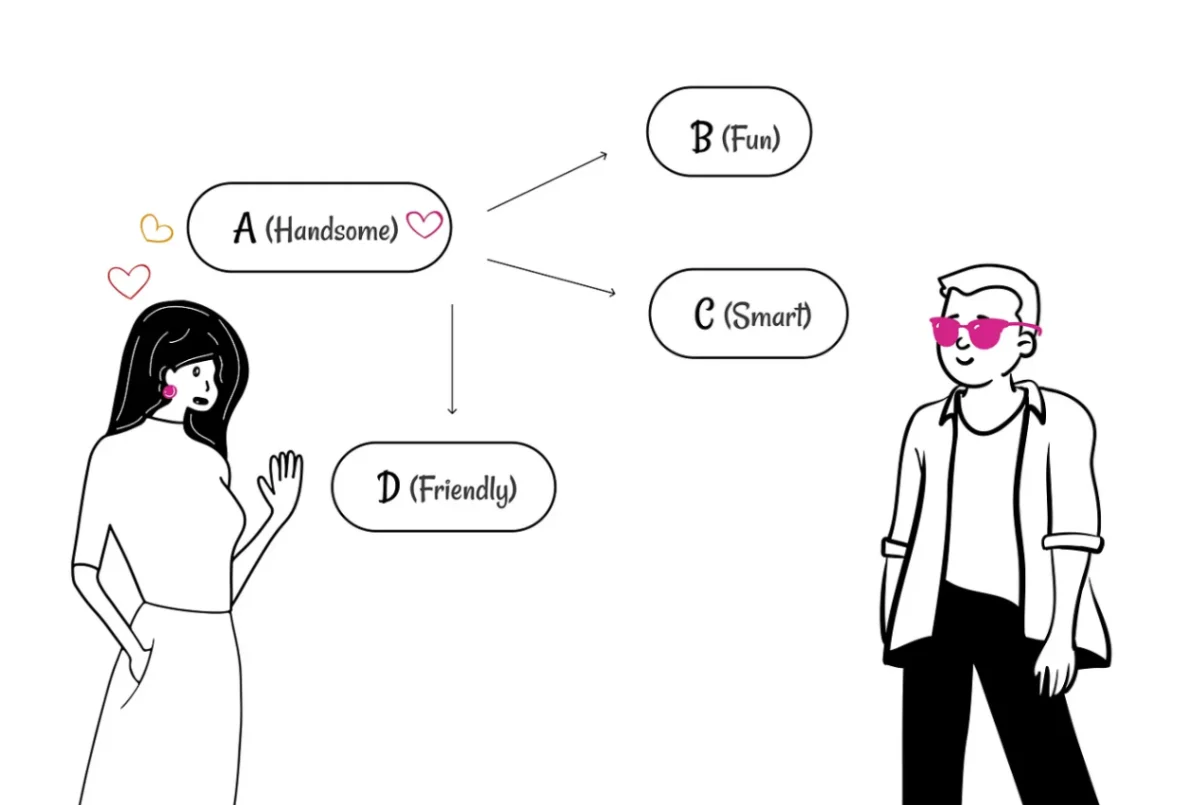You walk into a new store and are greeted by a friendly and well-dressed salesperson. Instantly, you get an overall positive feeling about the store. You might even think, “This store must have high-quality products” even before fully exploring it. This is a classic example of the halo effect in psychology.
What is the Halo Effect?
It is a psychological phenomenon where our overall impression of a person or a thing affects how we feel about their characteristics or properties. Essentially, if we like one thing about someone, we tend to think positively about everything else related to them.

In reality, everything and every person has both positive and negative characteristics. But if we were to research and process all of them before making a judgment, it would consume a lot of time and resources and we would be indecisive most of the time. So Halo effect helps us make quicker and more efficient judgments while making decisions. But it can also go wrong a lot of times.
Evolutionary Reason
The halo effect likely evolved as a mental shortcut to help our ancestors make quick decisions in a complex world. Back then, making rapid judgments about others could mean the difference between survival and danger. If someone appeared friendly and trustworthy, it was probably safe to assume they were, in fact, a good ally. This efficiency mechanism saved time and cognitive resources, allowing humans to focus on other survival tasks.
Real-Life Impacts
Here are some real-life examples of how the halo effect impacts our daily lives. It doesn’t mean these judgments are always wrong. But it shows how we make quick judgments without having all the information required.
Job Interviews: A candidate’s appearance and demeanor can significantly influence an interviewer’s perception. If a candidate looks polished and is personable, the interviewer might overlook minor flaws in their resume or overestimate their abilities, believing they are more competent than they might actually be.
Celebrity Endorsements: Think about the last time you saw a product endorsed by a famous actor or athlete. Chances are, you viewed that product more favorably simply because someone you admire is associated with it. This is why companies spend millions on celebrity endorsements; they know that the halo effect can drive sales by transferring the positive qualities we associate with the celebrity to their products.

Attractiveness: Physical appearance plays a huge role in our judgments. Attractive people are often perceived as more intelligent, kind, and capable than their less attractive peers. This can impact everything from hiring decisions to social interactions. For instance, a well-dressed, good-looking person might get better service at a restaurant or be more successful in a job interview, regardless of their actual qualifications.
Educational Settings: Teachers might unconsciously let the halo effect influence how they grade or interact with students. A student who excels in one subject might be perceived as more capable in other subjects as well, even without concrete evidence. Conversely, a student who struggles in one area might unfairly be seen as less capable overall.
Political Figures: A politician who speaks well and presents themselves confidently can gain public trust and support more easily, even if their policies are not well understood or particularly beneficial. The positive impression they create can overshadow their actual performance or policies.
First Impressions: First impressions are powerful and often hard to change. If you meet someone at a party who is charming and engaging, you might automatically assume they are also smart, kind, and successful, even if you know very little about them.
The halo effect shows just how much our perceptions can be skewed by initial impressions. It works the same way for negative judgments too. Recognizing the halo effect can help us make more balanced and fair decisions in our everyday lives.
Reference Links
https://en.wikipedia.org/wiki/Halo_effect
https://www.verywellmind.com/what-is-the-halo-effect-2795906
https://www.britannica.com/science/halo-effect
